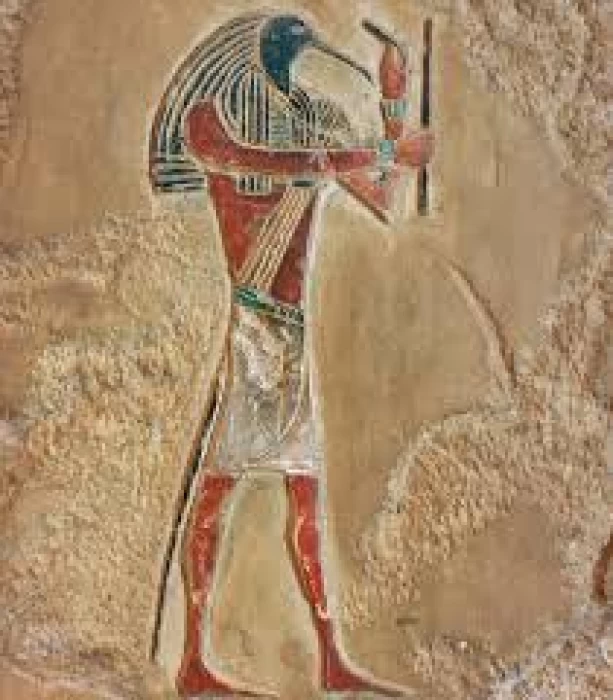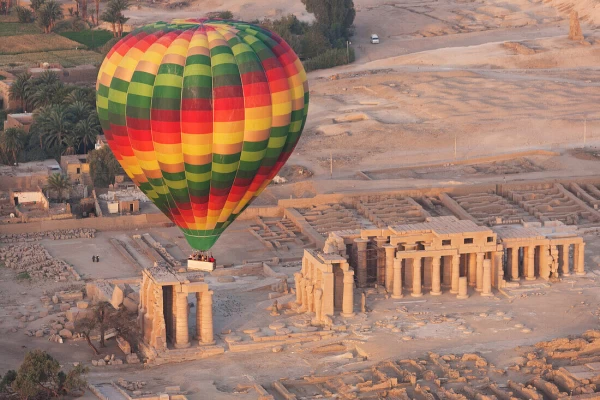
The Egyptian God Thoth
The ancient Egyptians believed that the god Thoth taught them writing and arithmetic. He is always depicted holding a pen and a tablet on which he writes. Egyptians were glorifying their gods and goddesses which you can learn more about them during Egypt Classic Tours. He has a fundamental role in the court of the dead, where the dead person is brought after resurrection to have his heart weighed in front of the feather of truth, Maat.
Thoth records the result of the scale. If the dead person’s heart is heavier than the feather of truth, then he is a sinner and a disobedient person. He throws his heart to a predatory beast that devours it, and this is the eternal end of the dead person. However, if the heart is lighter than the feather of truth, then this means that the dead person was righteous in this world, so he enters heaven to live there with his wife and loved ones after Osiris receives him.
Moreover, Thoth occupies an important position in the ancient Egyptian religion, as he is associated with the role of mediator between the gods of good and evil. You can discover Egyptian temples and museums like Karnak Temple and Luxor Temple which were places for worshipping the Egyptian Gods during your chosen trip from Egypt Easter Tours. The legend says that he witnessed three conflicts between good and evil, the most famous of which was the third conflict between Horus, son of Osiris, and Set, and he possessed superior magical abilities.
The role of Thoth was mentioned in the legend of Isis and Osiris. After Isis collected the remains of Osiris from all over Egypt under the action of Set, Thoth confided in her words so that she could resurrect him again, and give birth to their son Horus after his death. Then a battle took place between Horus, the avenger of his father, and Set, and Horus lost his left eye in that conflict, but consulting Thoth gave him the wisdom and knowledge to treat it and restore it, so Thoth was the god who spoke the will of Ra.
The Egyptians' knowledge of the calendar, the days of the year, and the months were linked to the god Thoth. Therefore, some people called the Egyptian calendar the Thoth calendar. The first month of the Egyptian month’s year is the month of "Thoth." Which relates to Thoth. Thoth is named for the god of wisdom, calculations, and astronomy among the ancient Egyptians. Discover more and more about Egypt's great history and the Egyptian civilization during your tour from the Egypt Travel package. Tailor your itinerary carefully with the Cairo Top Tours professional team.
Thoth, known in the dialect of ancient Egyptians as Djehuty, was the god of wisdom, writing, and knowledge. He had an incredibly important part in Egyptian mythology, as he was the god who acted as a mediator between the gods and a divine scribe who included all events in writing.
He was the minister standing next to Ra on the deck of his ship to recite to him the affairs of the state. He is the judge who decides disputes between the gods in heaven, and predicts to the gods and humans what will happen to them. In addition to building cities and setting their borders, he was the one who gave people words, writing, and correct arithmetic.
Thoth was usually portrayed as being one of the following:
A human male, having the head of an ibis, and holding a writing palette and a reed pen.
A baboon, an animal, connected with the moon and intelligence: the Egyptians.
He always takes pictures holding a pen and a tablet on which he writes.
Scribe of the Gods: He recorded the deeds of both gods and mortals and controlled the weighing of the heart in the afterlife.
Patron of Writing & Knowledge: He was said to have invented hieroglyphs and instructed mankind in writing.
God of the Moon: Connected with lunar cycles, it was supposed that Thoth would have authority regarding time and the upkeep of cosmic balance.
Arbiter Among the Gods: It played a role in settling disputes.
Thoth was worshipped as the final source of wisdom in Hermopolis (Khemenu), where he had his main cult center. His influence reached boundaries beyond Egypt, for to Greeks, he was Hermes Trismegistus, the legendary figure of Hermetic traditions.
Thoth remains perhaps the most revered deity in Egyptian mythology: intellect, learning, and divine ordination are those that he symbolizes.
God Thoth was among the most important gods of ancient Egypt and in particular, was the authority in the struggle between Horus and Seth for the successorship of Osiris. God Thoth, better known in ancient times as Theut, was the subject of a particular cult in the locality of Khomonou (in Greek Hermopolis ) in middle Egypt.
Thoth's name means 'He of Djehut', which was a province in Lower Egypt. He was the God of the moon, drawing, writing, geometry, wisdom, medicine, music, astronomy, and magic. Thoth was the patron of scribes as the creator of writing. According to a theory, he had made the creation of the world through word effectiveness.















